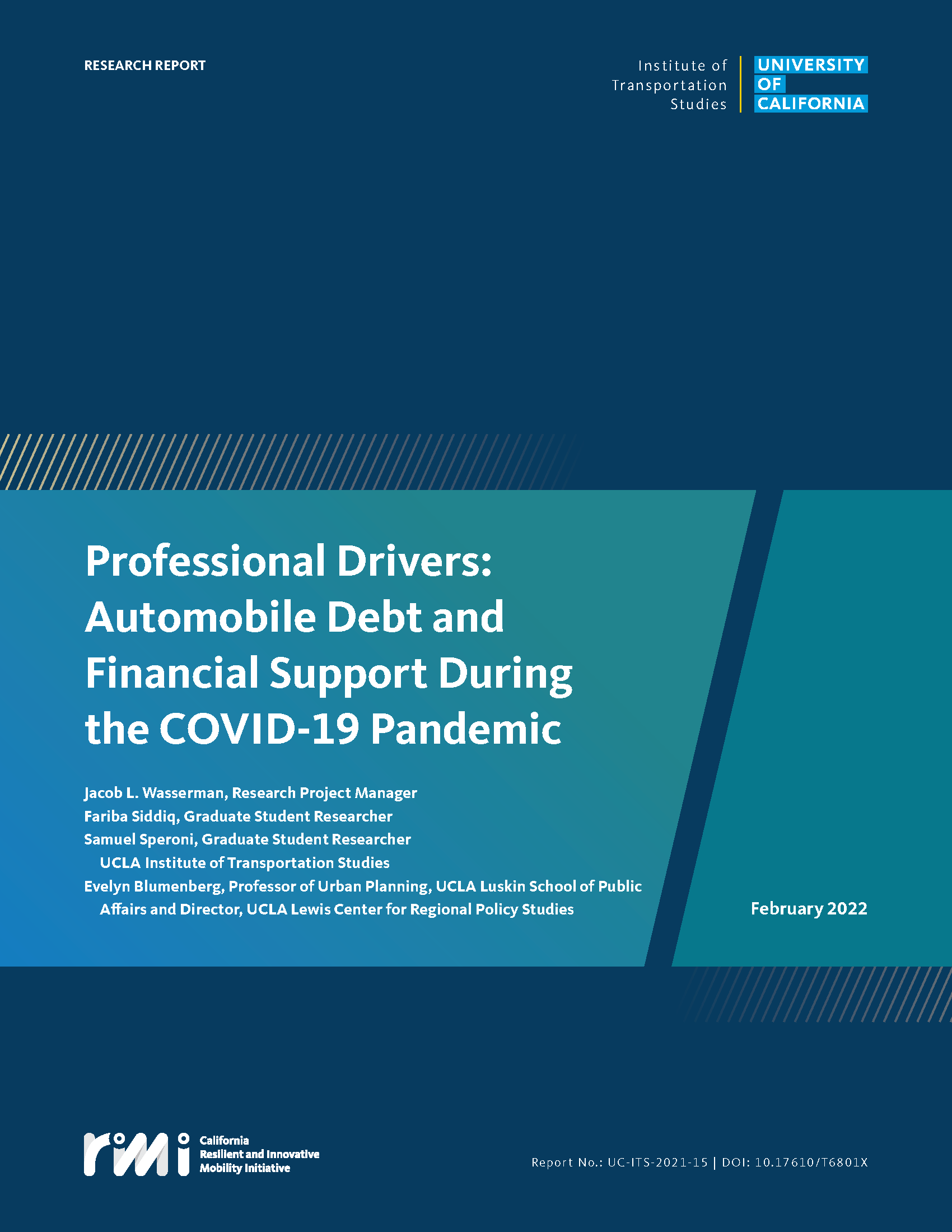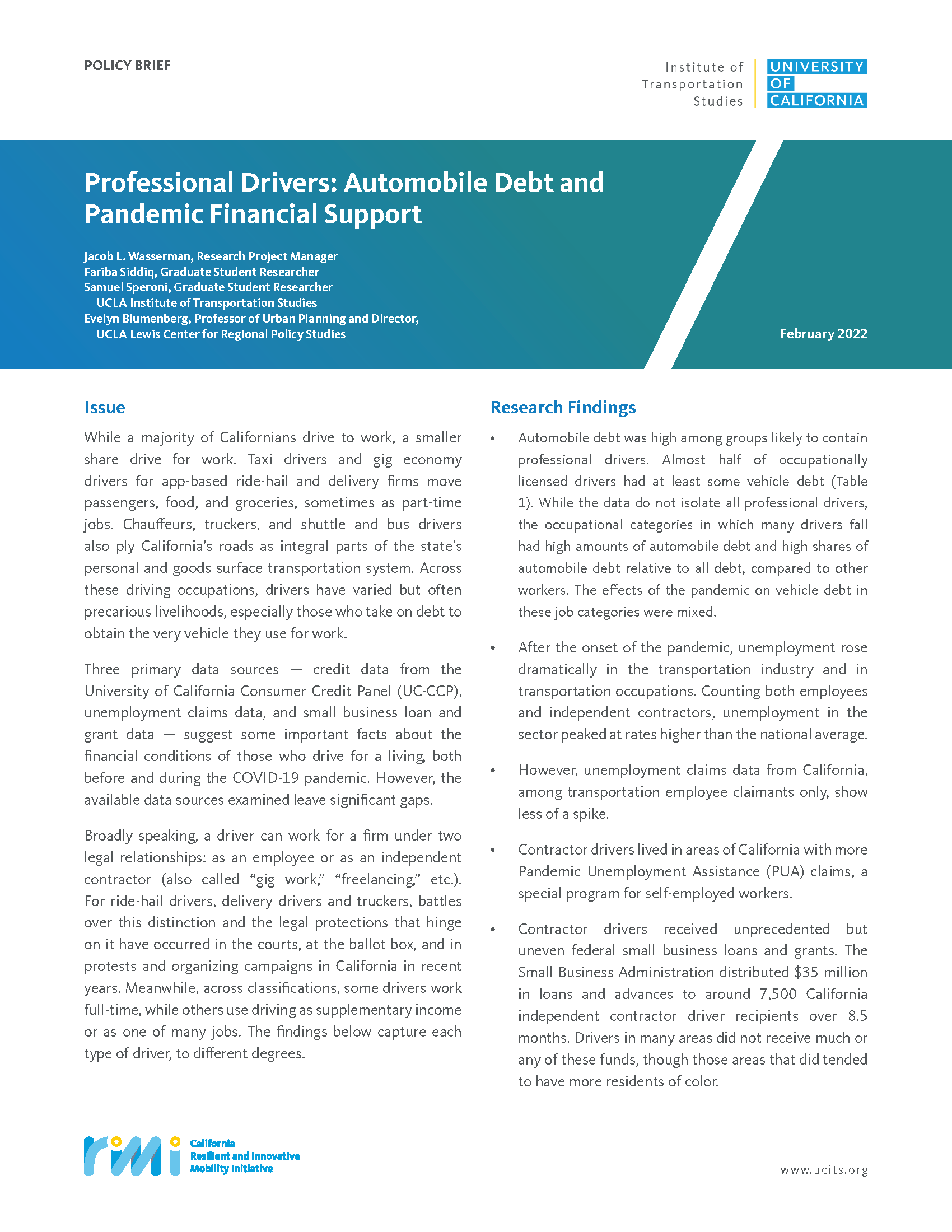Project ID:
LA2005Year Completed:
2022Project Description
This project synthesizes three primary data sources—credit data, unemployment claims data, and small business loan and grant data—to explore the financial conditions of those who drive for a living before and during the COVID-19 pandemic in California. Automobile debt was high among groups likely to contain professional drivers. The occupational categories in which many drivers fall had high absolute and relative levels of automobile debt compared to other workers. After the onset of the pandemic, unemployment rose dramatically in the transportation industry and in transportation occupations, peaking at rates higher than the national average. However, state unemployment claims data, among transportation employee claimants only, show less of a spike. Contractor drivers lived in areas with more Pandemic Unemployment Assistance claims, a special program for self-employed workers like gig drivers. Finally, contractor drivers received unprecedented but uneven federal small business loans and grants. Drivers in many areas, however, did not receive much or any of these funds, though those areas that did tended to have more residents of color. Assessing the full effect of the pandemic on professional drivers’ debt and finances will require additional and better data, particularly workforce data from gig economy firms that contract with drivers.

Jacob L. Wasserman (PI)
Research Team
Program Area(s):



